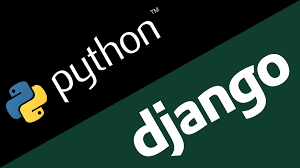Description
Introduction
C# is a modern, object-oriented programming language developed by Microsoft, designed to work seamlessly with the .NET framework. .NET is a powerful, cross-platform development framework that allows developers to build a wide range of applications, from web to desktop, mobile, and cloud-based solutions. This combination offers developers a highly efficient, scalable, and flexible environment for creating robust applications with a unified approach. C# and .NET have become widely adopted in the software development world, especially for building enterprise-level applications.
Prerequisites of C# and .NET Development
- Basic Programming Knowledge: Understanding of basic programming concepts such as variables, loops, functions, and data structures.
- Experience with Object-Oriented Programming (OOP): Familiarity with OOP concepts like classes, objects, inheritance, polymorphism, and encapsulation.
- Development Environment Setup:
- Visual Studio or Visual Studio Code for C# development.
- .NET SDK installed on your system.
- Understanding of Basic Software Development: Experience with creating simple applications, familiarity with debugging, and version control (Git) is beneficial.
TABLE OF CONTENT
1: Introduction to C# and .NET
1.1 Overview of C# language
1.2 Understanding the .NET ecosystem
1.3 Setting up the development environment
2: C# Basics
2.1 Variables and Data Types
2.2 Control Flow
2.3 Functions and Methods
3: Object-Oriented Programming (OOP) in C#
3.1 Classes and Objects
3.2 Inheritance
3.3 Encapsulation and Abstraction
4: Advanced C# Features
4.1 Exception Handling
4.2 Delegates and Events
4.3 LINQ (Language Integrated Query)
5: Introduction to .NET Framework
5.1 Overview of .NET Framework
5.2 Working with Collections
6: Windows Forms Application
6.1 Creating a Simple Windows Forms Application
6.2 Working with Controls
7: Introduction to ASP.NET
7.1 Basics of Web Development
7.2 Building Web Applications with ASP.NET
8: Introduction to Entity Framework
8.1 ORM (Object-Relational Mapping) with Entity Framework
8.2 Database Migrations
9: Advanced .NET Topics
9.1 Asynchronous Programming
9.2 Unit Testing with MSTest(Ref: Effective Unit Testing)
Conclusion
C# and .NET offer a powerful toolkit for developing a wide variety of applications. Whether you are building desktop software, web applications, or cloud services, the combination of C# and .NET provides the scalability, flexibility, and rich libraries needed for modern development. With continuous support from Microsoft and a vibrant community, C# and .NET remain one of the most popular choices for enterprise-level software solutions. Mastering these technologies will open up opportunities for developers to create efficient, maintainable, and high-performance applications.
Reference







Reviews
There are no reviews yet.